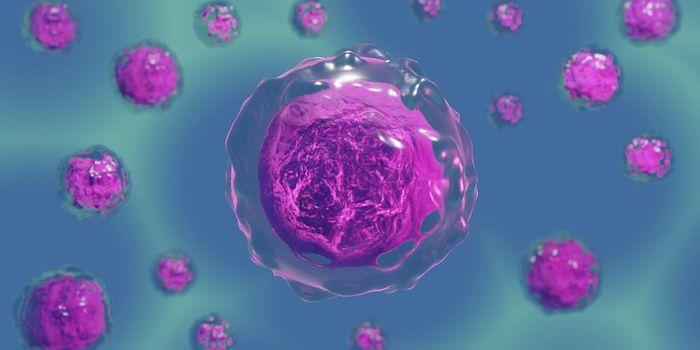Dietary Cholesterol Exacerbates Flu Infection
Diets that are high in fats and cholesterol have been associated with a variety of health problems, including an increased vulnerability to infection and an impaired immune system. New research has sought to determine the specific impact of cholesterol on infection. Reporting in the Journal of Immunology, scientists have shown that in a mouse model of flu infection, excessive levels of cholesterol in the diet made the illness worse.
Our bodies need cholesterol, which has several essential roles; it's involved in the production of hormones and vitamin D, for example, and is part of the membranes of cells. Our bodies can also generate cholesterol, so we don't need to consume that much of it. In healthy individuals, dietary cholesterol has little impact on the amount of cholesterol in circulation, and does not raise the risk of heart disease.
But for infections, dietary cholesterol seems to have an impact.
In this study, two groups of mice were either fed typical mouse food or that same food spiked with two percent cholesterol. After five weeks on the diet, the mice were exposed to influenza A virus that can infect mice but is like that which infects people.
The work showed that mice fed cholesterol lost more weight and got sicker from the flu infection. "Across four cohorts, the cholesterol-fed mice had consistently higher morbidity," noted first study author Allison Louie, a graduate candidate at the University of Illinois.
While some viruses use cholesterol as they are infecting or reproducing in cells, that did not seem to be the case here.
The viral load was not found to be significantly different among the two groups of mice, noted postdoctoral researcher and study co-author Joseph Tingling. "It's very important to consider not just the infectious agent, but the host immune system."
The scientists found that in the mice given cholesterol, there was immune dysfunction. Though fat can suppress the immune system, which is clearly a problem for a body trying to fight off an infection, cholesterol actually seemed to cause the immune system to be overactive. The cholesterol-treated mice had higher levels of immune cells that produce inflammatory cytokine molecules in their lungs.
The immune system has to spring into action, but it must also be carefully regulated or it can become a problem itself.
"A so-called cytokine storm during severe disease results in excessive inflammation that can be damaging to the host," Louie said. The cholesterol-fed mice seemed to get sicker because of those cytokines.
The impact of cholesterol was also a lasting one. Mice fed a diet high in cholesterol who were then given a normal diet for five weeks still got sicker than mice never given cholesterol when they were infected with the flu.
The researchers noted that this study has shown how host factors can have a complex influence on the course of a disease.
Sources: University of Illinois, Journal of Immunology









